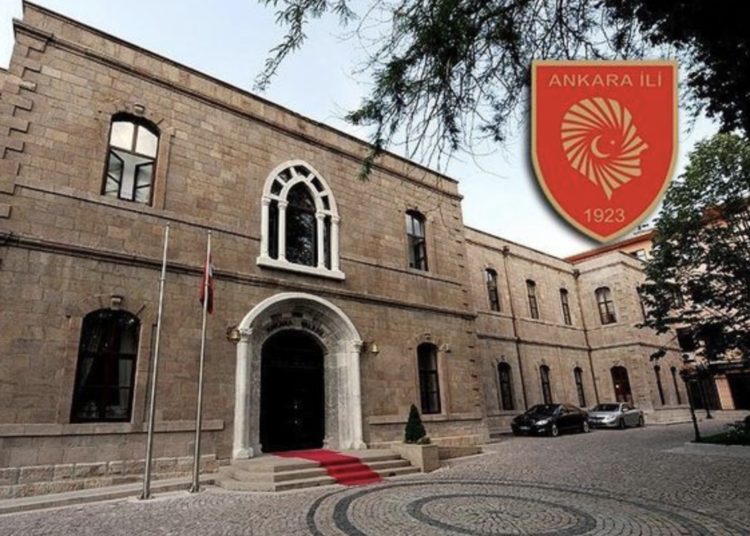The Turkish government has gone after critics, opponents and dissidents, using membership in duly authorized and officially registered nongovernmental organizations as a pretext to arrest and prosecute people although such membership is not defined as a crime under the law.
According to a secret government document obtained by Nordic Monitor, the governor’s office in the Turkish capital of Ankara investigated people over their membership in associations and referred the data collected to a criminal court in Istanbul. The document, dated May 7, 2018 and stamped “secret,” shows that 97 people were investigated in a database called Derbis, an electronic filing system for associations that was maintained by the Interior Ministry and shows the names of people who were selected for senior positions at the associations.
The document, signed by Deputy Governor Şükrü Yıldırım on behalf of the governor, says the names were also checked against registries that were kept by the associations themselves and that were later turned over to the governor’s office. The review was not limited to organizations shuttered in 2016 and also included entities that are still operational. The Erdoğan government closed down 1,229 foundations and associations in 2016 using a false flag coup attempt as a pretext.

The information gathered on 91 people with regard to their membership in associations was used in a criminal prosecution in Istanbul. The document contains 94 line items associating names with nongovernmental organizations. The associations named in the list were established to promote a variety of agendas such as democracy, business, arts, culture, urban development, education, sports, industry, charity and newspapers.
For example, Ali Akbulut, a board member at Zaman, once Turkey’s highest-circulating national newspaper, was profiled because he was a member of the Association of Newspaper Owners. Ahmet Türkcan was investigated because he was part of management at the Association for Civil Thought and the Democracy Movement. Mehmet Gözütok was listed because he served as manager of the Göztepe Sports Club Association. Niyazi Akalın was flagged because he was on the board of the Research and Training Association for the Prevention of Electromagnetic Pollution. Hasan Kahveci was investigated over his position with the Izmir Young Businesspeople’s Association. The list goes on and on.



The Ankara Governor’s Office also profiled people who made donations to Kimse Yok Mu, a one-time major charity that was shut down by the Erdoğan government over links to the Gülen movement, from paper receipt stubs that showed who made donations and in what amounts. Kimse Yok Mu was a UN-accredited organization and had been active in dozens of countries around the world.
In an attempt to ward off any criticism for possible mistakes, the deputy governor told the court that any factual mistake in the profiling data must be attributed to the electronic system, not to the governor’s office, which would deny any connection to such a mistake.
After the corruption and bribery investigations of December 17/25, 2013 that incriminated then-Prime Minister Erdoğan and his family members, associations, foundations, media outlets, unions and other institutions that were linked to critics came under increased pressure from the government. In 2016 the Erdoğan government shut down 19 unions, federations and confederations along with 35 health institutions, 1,043 private educational institutions, 1,229 foundations and associations, and 15 universities with decree-law No. 667. Their assets were confiscated as well. Administrators and members of the unions also faced detention and arrest in large numbers.

The Turkish government violated the principle of non-retroactivity, which stipulates that a criminal law cannot be applied to the past to prosecute crimes committed before the law was enacted. Moreover, the principle of legality assures that no act can be considered a crime unless it is clearly defined and prohibited in the law. As a general rule, a criminal offense and its punishment must be described in the law. These fundamental principles are ignored in Turkey in ongoing prosecutions against critics, primarily members of the Gülen movement and the Kurdish political movement.
In clear violation of the Turkish Constitution and the European Convention on Human Rights (ECHR), the Turkish government is using membership in duly authorized and officially registered institutions as a pretext to arrest and prosecute people although such membership is not defined as a crime under the law. Article 7 of the ECHR guarantees the principle of non-retroactivity, yet the documents show this principle was disregarded by the Istanbul 33rd High Criminal Court, which used the association data provided by the governor’s office.
The national ID numbers were redacted in the documents by Nordic Monitor.












